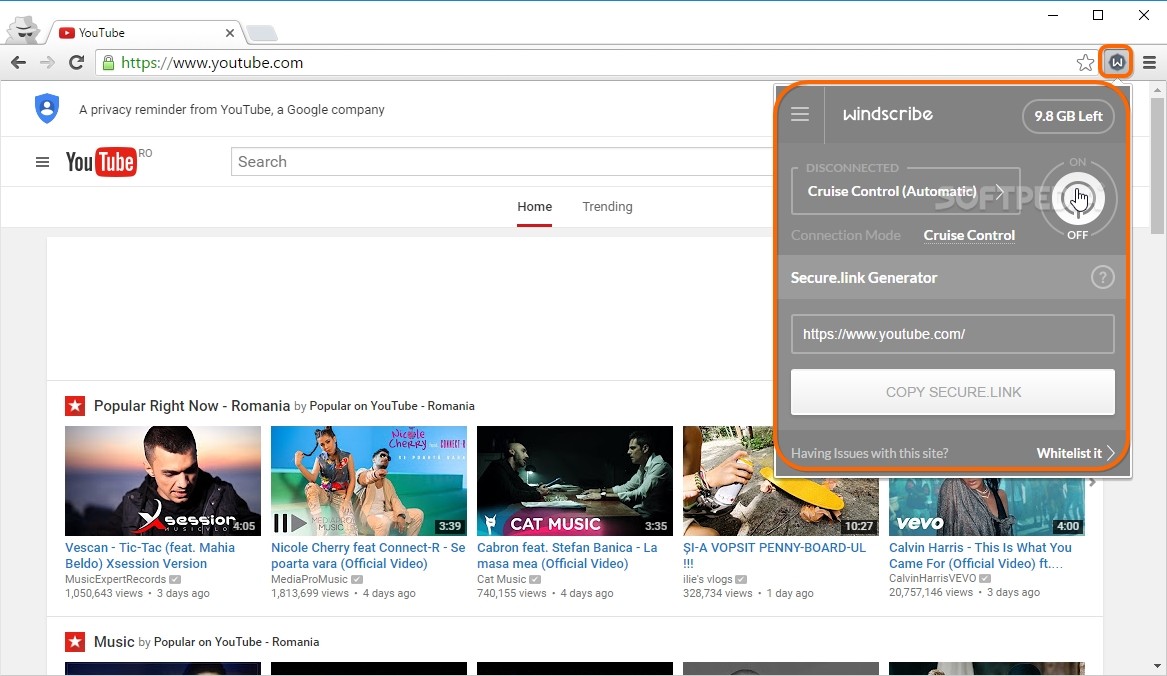
- #WINDSCRIBE BROWSER EXTENSION INSTALL#
- #WINDSCRIBE BROWSER EXTENSION FULL#
- #WINDSCRIBE BROWSER EXTENSION FREE#
#WINDSCRIBE BROWSER EXTENSION FREE#
Windscribe offers free access to servers in 10 countries around the world and can unblock Netflix and other streaming services.
#WINDSCRIBE BROWSER EXTENSION FULL#
To get the full 15GB a month, you need to confirm an email address associated with your account and take advantage of the “ Tweet-4-Data” scheme. You need to create and sign in with a free account to use the service.
#WINDSCRIBE BROWSER EXTENSION INSTALL#
You can install its free Chrome browser extension from the downloads page. Windscribe offers up to 15GB a month of data to its free users. What you want to do is find a reputable VPN provider that offers a reasonable free tier. In the case of a VPN, this means that the free VPN provider is now actively monitoring and selling all of your browsing data, this makes them even worse for your privacy than not using a VPN. Free VPNs, like almost any free product, have to make money somewhere, and this is generally done by selling user data to advertisers. There are plenty of free VPN extensions in the Chrome Web Store, but you should be very wary of all of them. The main difference is that it only protects data sent from your browser, rather than all communications from your computer. A browser-based VPN is an extension for your browser which creates a secure connection between your browser and the VPN server. 2.A traditional VPN is a standalone program that sets up an encrypted connection from your device to a VPN server and tunnels all internet traffic through to the VPN server. You can read more about the differences between VPNs and proxies in our in-depth guide. We like to see them as aligned as possible, ideally identical, and for the privacy policy to be as close to zero-logs as possible. On top of that, we inspect the VPNs privacy policy for any differences between its full app and browser extension.

Those that offer less robust encryption like SSTP have a lower rating, but are still preferable over a proxy. We look for encryption protocols like OpenVPN and WireGuard and ciphers like AES-256. Proxies leave your data open to prying eyes. While proxies can unblock websites by changing your IP like a VPN does, a VPN is different (and superior) because it works at a device-level and encrypts all the data flowing through your device. VPN encryption is what sets a browser extension apart from a low-level proxy, or spoofer. We Recommend: Industry-standard encryption of traffic and a clear logging policy. Minimum Requirement: An extension that encrypts traffic. The best Firefox VPNs also let you unblock geo-restricted websites, and websites blocked by school/office administrators. You can change IP address without having to open the VPN application. A browser VPN is instantly accessible as you’re browsing the web. This includes ad and malware blockers as well as WebRTC leak protection.Īlso, VPN extensions can be easier to use. However, a Firefox-specific VPN extension comes with additional and convenient features. Your web traffic will still travel through the encrypted VPN tunnel. If you already use a VPN on your desktop computer, you don’t necessarily need a VPN browser add-on. Remember that if you log into a web service, like Gmail or Twitter, you’ll no longer be anonymous even if your VPN is running. No browser can do this, and it ensures your online searches remain private.


They mask your real IP address with a fake one. VPNs encrypt all internet traffic flowing through your device. Private Browsing also doesn’t protect you from keyloggers or spyware that may be installed on your computer.” Your internet service provider, employer, or the sites themselves can still gather information about pages you visit. “Private Browsing doesn’t make you anonymous on the internet. However, just browsing the web with Firefox won’t protect your online privacy and security – you can still be tracked or hacked.Įven Firefox’s Private Browsing – which erases passwords, cookies, and history – doesn’t make you completely safe. With some configuration, we recommend Firefox as the best browser for privacy.

There’s some truth to the statement above. Firefox has a reputation for being more privacy-friendly than Google Chrome.


 0 kommentar(er)
0 kommentar(er)
